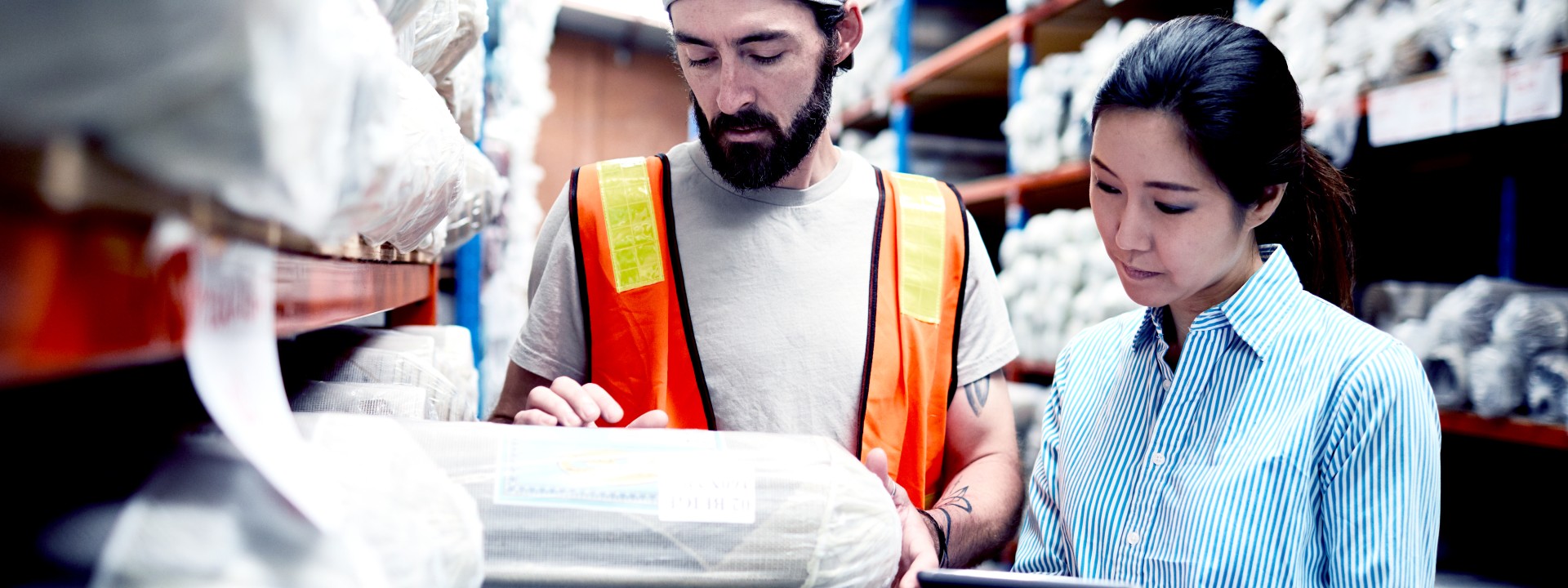How do you audit a responsible supply chain?

Lead auditor Jelena Vidaković talks about her work
Thanks to their outstanding sector knowledge and long experience, our experts enable customers’ progress. They investigate with great care whether companies are complying with globally valid social standards. Jelena Vidaković is one of these experts. She has worked at TÜV Rheinland for eight years, and as a Regional Business Field Manager she’s responsible for Central and Eastern Europe. As a lead auditor, she’s familiar with all of the currently used social audits and monitors supply chains according to amfori BSCI (Business Social Compliance Initiative), ICS (Initiative for Compliance and Sustainability), PSCI (Pharmaceutical Supply Chain Initiative), SMETA (Sedex Members Ethical Trade Audit), QMS (Quality Management System) and EMS (Environmental Management System). She also helps companies formulate their own codes of conduct.
Ms. Vidaković, what does your typical workday look like?
It’s divided into two main areas of responsibility. First, from my office in Belgrade I coordinate our auditing business in Central and Eastern Europe. Second, I also conduct supply chain audits in this region, so I’m on the road for much of the time.
What sectors do your customers come from?
Our customers mainly come from the textile industry, but we also have some from the metal and food industries. Here in the Balkan region we operate in Slovenia, Bosnia-Herzegovina, Croatia, Macedonia, Montenegro, Albania and a number of other countries. In former members of the Soviet Union, such as Ukraine, Georgia and Kazakhstan, our experts are among the few inspectors that conduct social audits. That’s one of the big advantages of the global coverage we offer at TÜV Rheinland.
What kind of problems do you confront most often?
Problems related to the health and safety of employees. To give you a specific example, companies don’t always ensure fire protection. In most cases, the companies aren’t aware of the legal requirements, such as correctly located emergency exits, clear emergency escape routes and a sufficient number of easily reachable fire extinguishers. In addition, depending on the respective country’s legal system, in many cases there’s no requirement for clear documentation of employees’ presence and working times. That leads to unpaid overtime and night work or, in general, to working times that are not compatible with social standards.
How complex are the social audits?
The complexity of the schemes — in other words, the checklists — depends on the company and the standard we use, such as amfori BSCI. In general, most of the social standards are much more detailed than ISO standards. We have to precisely fill out questionnaires, investigate many specific points, conduct interviews, carry out research and do cross-checking. When we audit large companies we work as a team, and an audit usually lasts several days.
How do you ensure that the schemes are appropriate and up to date?
For every scheme, whether it’s ICS, amfori BSCI or EMS, we have managers who monitor their content and inform us auditors about every update made by the corresponding initiatives. The managers also keep us up to date with changes to our internal processes — because we have our own standard operation procedures for every scheme.
How do you conduct an audit?
In a previously announced audit, I first talk with the management, and we schedule a tour of the premises. If it’s an unannounced audit, we enter the factory immediately. I begin by gaining a general impression. After that, I make detailed checks and talk with the employees. In many cases the workforce is nervous, and that’s why I meet with them on an equal footing and talk with them openly and honestly. After all, our goal is to improve their situation.

I find most of the weak points during my tour.
Jelena VidakovićHow do you detect deviations from defined standards?
I find most of the weak points during my tour. Here’s an example from one of my audits of a textile factory: a sewing machine with rotating elements was not covered — that’s clearly a safety hazard. In a case like that, I do research to find out the regulations for this type of machine and how they must be fulfilled, for example according to the amfori BSCI standard. It’s also important to inform the employees about this standard. If the workforce doesn’t know the standard, I point it out to them and I can draw conclusions about the general level of safety in the company. The chemicals used in textile factories are another frequently occurring weak point. Are they labelled correctly? Are they being handled safely?
How is business success connected with responsibility?
We offer audits according to international standards that are recognized by public organizations, and we conduct them more stringently than government inspectors or our competitors do. That’s how we enable companies to improve their working conditions, audit by audit as well as step by step. We also investigate the deeper connections and weak points that are not visible to a company’s management during daily operations. By reading our reports, potential business partners can see whether a company is worth considering as a supplier in sustainable business processes. A sense of responsibility expressed in this way is worthwhile from a long-term economic perspective.
How do the auditors at TÜV Rheinland acquire their expertise?
I stay curious, I’m involved in the preparation of countless reports in a wide variety of sectors, and I stay in close contact with my colleagues. We share our experience on a regular and mandatory basis. In addition, I’m familiar with the approaches that are normally used by other inspection companies. We have very high requirements for our personnel in this field. We commission auditors who have many years of experience in specific sectors, technical expertise, and comprehensive knowledge of the local language and local laws. In addition, our auditors are authorized to conduct audits according to all of the current standards and are registered members of the Association of Professional Social Compliance Auditors (APSCA).

My personal motivation is my desire to make the world a more humane place.
Jelena VidakovićWhat’s your personal motivation for doing your work?
The idea of improving working conditions all over the world. Through my audits I’m making people safer as they do their daily work. That makes the world a more humane place. Every one of my audits so far has led to targeted improvements in the respective firms.











